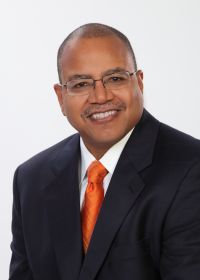UT System Regents appoint Kirk Calhoun president of unified Tyler institution
The University of Texas System Board of Regents formalized the leadership of a unified UT Tyler today, voting unanimously to name Kirk A. Calhoun, M.D., president. Calhoun will officially become president of UT Tyler on Jan. 4, 2021.
UT Tyler and the UT Health Science Center at Tyler are merging to create a single, integrated university that will more comprehensively serve the educational, health and economic needs of East Texas. The merged university will be called UT Tyler.
Calhoun, a longtime leader in health care and higher education, has served as president of UT Health Science Center at Tyler since 2002 and is chairman of UT Health East Texas, the 10-hospital health system that serves the region. Regents had announced their intent in June to name Calhoun president of the unified UT Tyler.
Earlier this month, the Southern Association of Colleges and Schools Commission on Colleges approved an operational plan to merge the two institutions after a steering committee composed of faculty and staff from both Tyler institutions submitted a prospectus for the Commission’s consideration and authorization. As part of that process, the organizational structure of the unified institution required the recommendation of one president, with responsibility for all functions of the university.
Board Chairman Kevin P. Eltife said that the integration of the Tyler institutions would not have been possible without the outstanding cooperation of Calhoun and Michael V. Tidwell, Ph.D., currently the president of UT Tyler.
“From the beginning, both presidents have been fully committed to the vision to grow the mission and impact of the University of Texas in Tyler,” Eltife said. “Dr. Calhoun and Dr. Tidwell have navigated the process to bring two great institutions together with great focus and collegiality.”
With the unification, UT Tyler will now be able to offer a comprehensive slate of undergraduate, graduate, medical and other professional health degree programs, establishing a clear pathway from undergraduate education to graduate and professional programs. Furthermore, UT Tyler will provide a seamless opportunity for collaboration among faculty in teaching, research and service.
Over the past year, the Board of Regents has invested $95 million in new educational and clinical facilities at the Tyler institutions and announced plans to establish the first medical school in Tyler, pending additional authorizations. An $80 million gift from the East Texas Medical Center Foundation already has been secured to help fund the medical school.
“Today’s action by the Board of Regents is an exciting milestone in the development of the new, consolidated UT Tyler,” Chancellor James B. Milliken said. “I want to add my thanks to Presidents Calhoun and Tidwell for helping bring us to this important stage, and we all look forward to the transformational impact of the new UT Tyler.”
Under the plan approved by Southern Association of Colleges and Schools, the UT Health Science Center at Tyler will retain its status as a health-related institution but will administratively become an instructional unit of UT Tyler. The unified university will have a total enrollment of about 10,000 students, more than 400 full-time faculty and about 1,700 health care professionals, researchers and support staff.
About The University of Texas System
For more than 130 years, The University of Texas System has been committed to improving the lives of Texans and people all over the world through education, research and health care. With 14 institutions, an enrollment of nearly 240,000 students and an operating budget of $21.7 billion (FY 2021), the UT System is one of the largest public university systems in the United States. UT institutions produce more than 64,000 graduates annually and award more than one-third of the state’s undergraduate degrees and more than half of its health professional degrees. Collectively, UT-owned and affiliated hospitals and clinics accounted for more than 9.2 million outpatient visits and 1.8 million hospital days last year. UT institutions also are among the most innovative in the world, collectively ranking No. 3 for most U.S. patents granted in 2019, and the UT System is No. 1 in Texas and No. 2 in the nation in federal research expenditures. The UT System also is one of the largest employers in Texas, with more than 21,000 faculty – including Nobel laureates and members of the National Academies – and more than 85,000 health care professionals, researchers and support staff.
News Contact Information
Karen Adler: kadler@utsystem.edu • 512-499-4360 (direct) • 210-912-8055 (cell)


